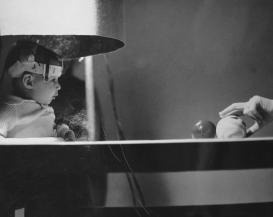What are the parallels between conceptual development in children and knowledge formation in the sciences? How have ideas of such parallel transformations informed understandings of cognition and the methods of historians? Answers to these questions have been jointly approached by historians of science and psychologists. Such interactions have shaped what we moderns think we know about the mind and how we seek to understand the premodern past.
This project examines how knowledge about the history of sciences since antiquity informs practices in the recent psychological sciences. Psychological and philosophical questions about the nature of knowledge and of the mind have, in the last sixty years, come to be answered in new ways by the young field of developmental psychology, which now holds that children should be understood as though they are scientists. The implication is that conceptual change in each individual child should be seen in the same way that large-scale conceptional transformations have occurred in the sciences since antiquity. For this reason, psychologists have become deeply inspired by works in the history and philosophy of science. By combining historical study with experimental methods, they have traced how children’s concepts of living things parallel a range of ideas about the definition of life and about taxonomy offered by Aristotle through the medieval, Enlightenment, and nineteenth-century sciences. Conversely, my project asks how historians—who, although they study the premodern world, live in the modern world—deploy interpretive tools that partake in recent psychological and philosophical models of thinking, learning, and knowledge.

